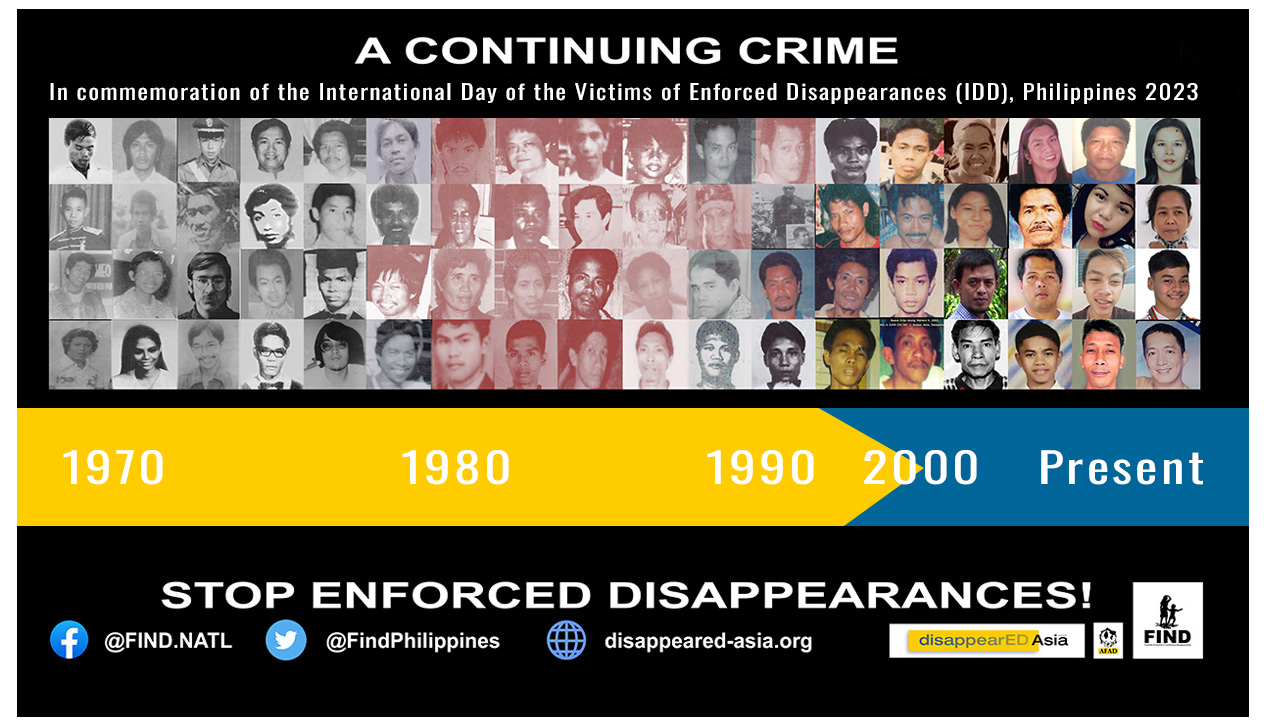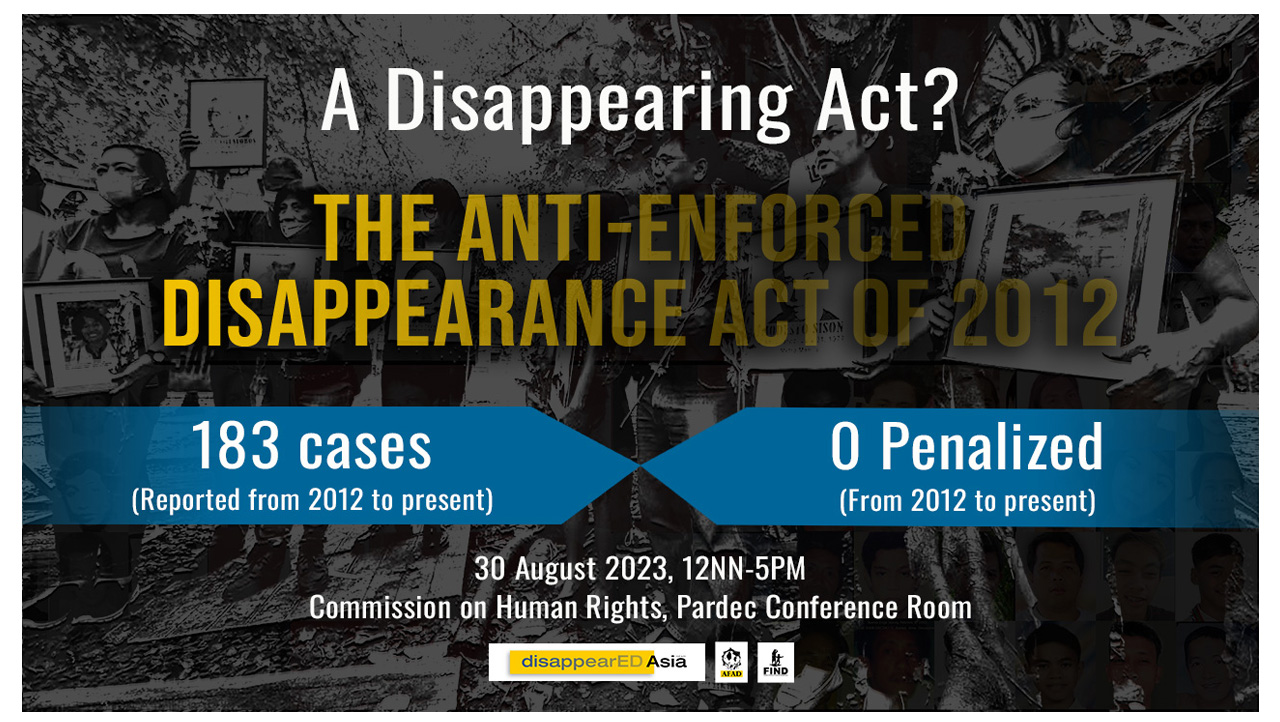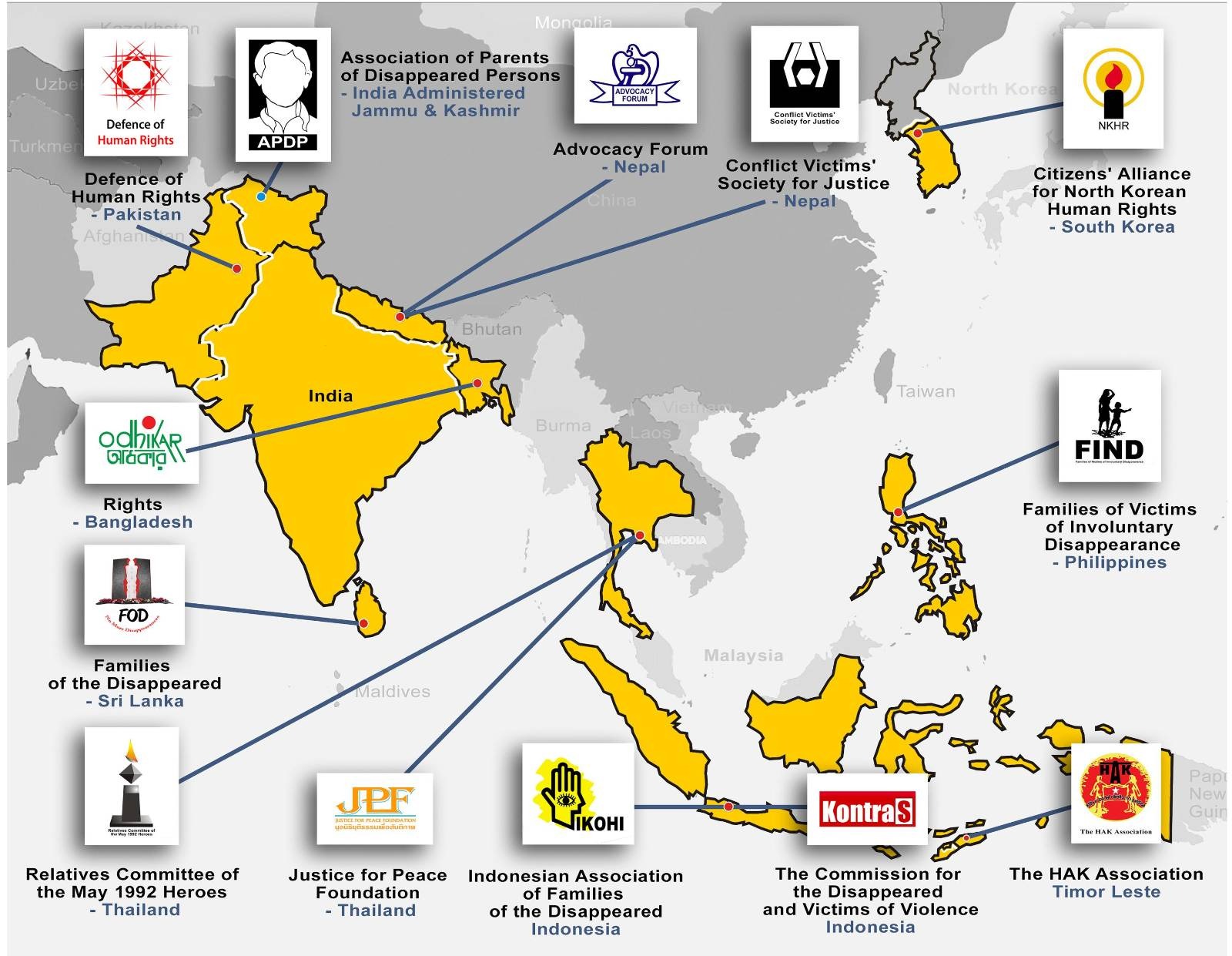What's Happening
Remembering the Desaparecidos through Patriotic Music and Poetry
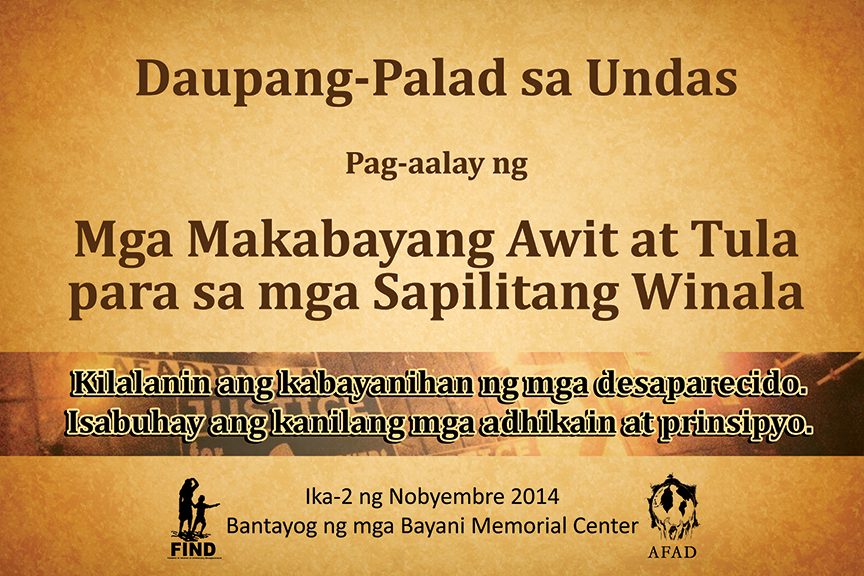
Loss comes in many ways. All Saints’ Day highlights the loss arising from the death of loved ones. Visiting cemeteries or columbaria in the company of other relatives of departed kin somehow eases the pain of loss.
But we who have lost our loved ones to enforced disappearance have no remains to bury or cremate – no graves or cinerary vaults to seal the certainty of our kin’s fate.
As we perpetually equivocate between hope and despair, closure becomes as elusive as justice. To calm our unsettledness, we draw support and strength from other families and friends of the disappeared.
Burmese government urged to investigate the enforced disappearance of Sumlut Roi Ja
On the third anniversary of the abduction of Sumlut Roi Ja, an ethnic Kachin woman from Burma, we, the undersigned organizations, call on the Burmese government to thoroughly investigate her enforced disappearance and hold the perpetrators accountable.
On 28 October 2011, Burma Army soldiers from Light Infantry Battalion 321 abducted 28-year-old Sumlut Roi Ja along with her husband and father-in-law from their family farm near Hkaibang Village, Momauk Township, Kachin State.
Pursue the Struggle for Justice in Honor of the Memories of the Disappeared!
“We join with the families and friends of victims of the disappeared of Sri Lanka in honoring the memories of their loved ones as they gather today to commemorate the National Day of the Disappeared”, Mary Aileen Bacalso, Secretary General of the Asian Federation Against Involuntary Disappearances (AFAD), said in a statement.
The memorial is an important and sacred site for the families to meet annually, share their stories of perseverance and little victories in the search for truth and justice despite very difficult circumstances under a repressive government. It is where they can collectively honor the memories of their disappeared loved ones. It is also a manifestation of the Sri Lankan government’s dark human rights record both of the past and of the present.
We Urge President Jokowi to Appoint Cabinet Officials with Clean Human Rights Records
The Asian Federation Against Involuntary Disappearances (AFAD), calls on newly-elected Indonesian President Jokowi Widodo to appoint Cabinet officials with clean human rights record in keeping with his election promise of addressing the justice claims of victims of human rights violations in the past.
AFAD is aware of the various interest groups that are now lobbying President Jokowi for key posts in his Cabinet. Based on the experiences of AFAD member-organizations from other Asia countries, addressing impunity for human rights violations proved difficult when representatives of groups responsible for human rights violations in the past are appointed to key positions in government because they block whatever measures undertaken to investigate and prosecute those from among their ranks.

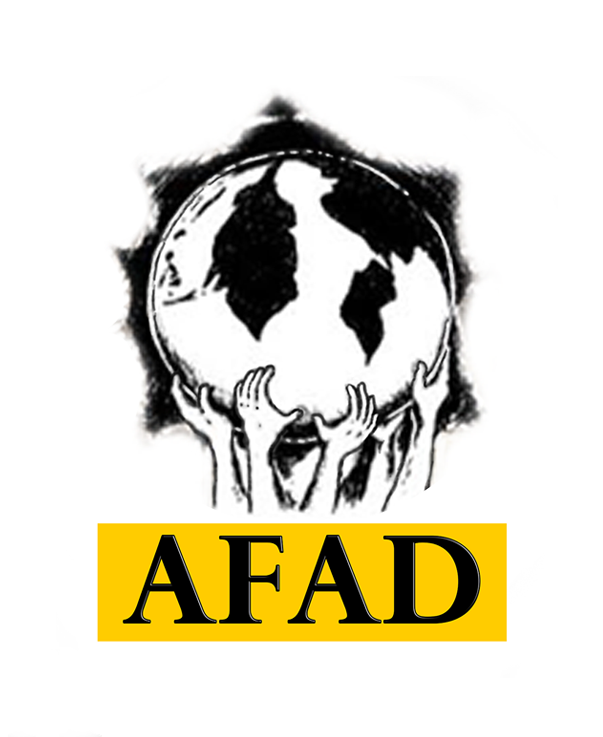 Asian Federation Against
Asian Federation Against 